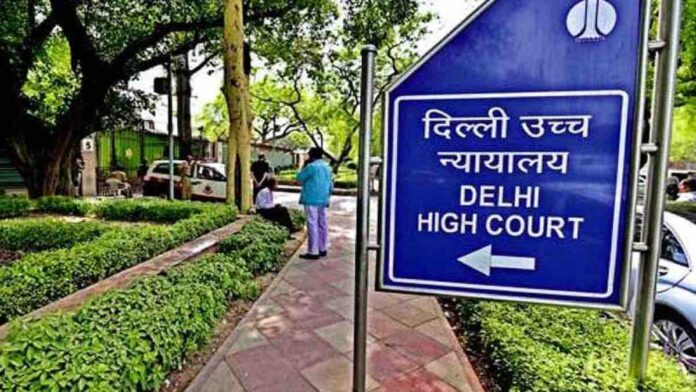The Delhi High Court has set aside the appointment of Dr Navneet Goel as Medical Director of the state-run Dr Babasaheb Ambedkar Hospital here, saying the Delhi government’s health department created the post without following the due procedure.
It said the power of State, as an employer, cannot be exercised arbitrarily.
A bench headed by Chief Justice Satish Chandra Sharma observed that public employment in a sovereign, socialist, secular, democratic republic has to be in accordance with the Constitution and laws, and in the present case, the appointment was not in terms of the statutory provisions.
The power of State, which is meant to be a”model employer”, are “more limited” than a private employer as they are subject to constitutional limitations, the court observed.
“Public employment in a sovereign, socialist, secular, democratic republic, has to be as set down by the Constitution and the laws made thereunder. Our Constitutional scheme envisages employment by the government and its instrumentalities on the basis of procedure established,” said the bench, also comprising Justice Subramonium Prasad, on a PIL by an individual-Suresh Gaur.
“In no manner can it be construed that the appointment of Respondent No. 4 (Dr Navneet Goel) was done keeping in mind the relevant statutory provisions. In light of the aforesaid, this instant Writ Petition is allowed and the Impugned Order of appointment of Respondent No. 4 as the Medical Director, BSA Hospital is set aside,” ordered the court on May 24.
The petitioner, represented by lawyer Avadh Bihari Kaushik, had claimed that Goel was appointed as the Medical Director, Babasaheb Ambedkar Hospital (BSA Hospital) on March 10, 2021 by the Delhi government in an absolutely anomalous, illegal and arbitrary manner.
He also alleged there was utter mismanagement at the BSA Hospital ever since he took charge.
The court, in its order, stated the post of Medical Director itself was created through and order dated February 19, 2016 by the health department without following the due process, and the authorities did not place anything on record to state that due process was followed for sanctioning the post as per the Allopathy Rules, 2009.
It also said the authorities appointed “Respondent No. 4 to an irregular post, whilst not even keeping in mind the criterion they themselves have stipulated for appointment to the said post.”
Also Read
“It is an undisputed fact that the post of Medical Director does not find place in the Allopathy Rules, 2009. The post of Medical Director was created only in terms of the aforesaid mechanical Order dated 19.02.2016. The same, or any other submissions and documents put forth by the Respondents to build their case, has most certainly not satisfied the judicial conscience of this Court,” the court stated.
Defending the appointment, the Delhi government stated the issue of eligibility to the post of Medical Director was only an “administrative decision” keeping in mind the administrative skill, managerial experience and capability of the candidate.
The court however said the “vague criterion affording an almost opaque discretion to the government” for appointment to the post of Medical Director cannot be allowed.
“The State is duty bound to act in a fair and transparent manner in matters of public employment. Any criterion which would be arbitrary in matters of public employment, would run afoul of Articles 14 & 16 of the Constitution,” the court said.
“Equality of opportunity is the hallmark, and the Constitution has provided also for affirmative action to ensure that unequals are not treated as equals. Thus, any public employment has to be in terms of the constitutional scheme. The power of a State as an employer is more limited than even that of a private employer inasmuch as it is subjected to constitutional limitations and cannot be exercised arbitrarily,” stated the court.




